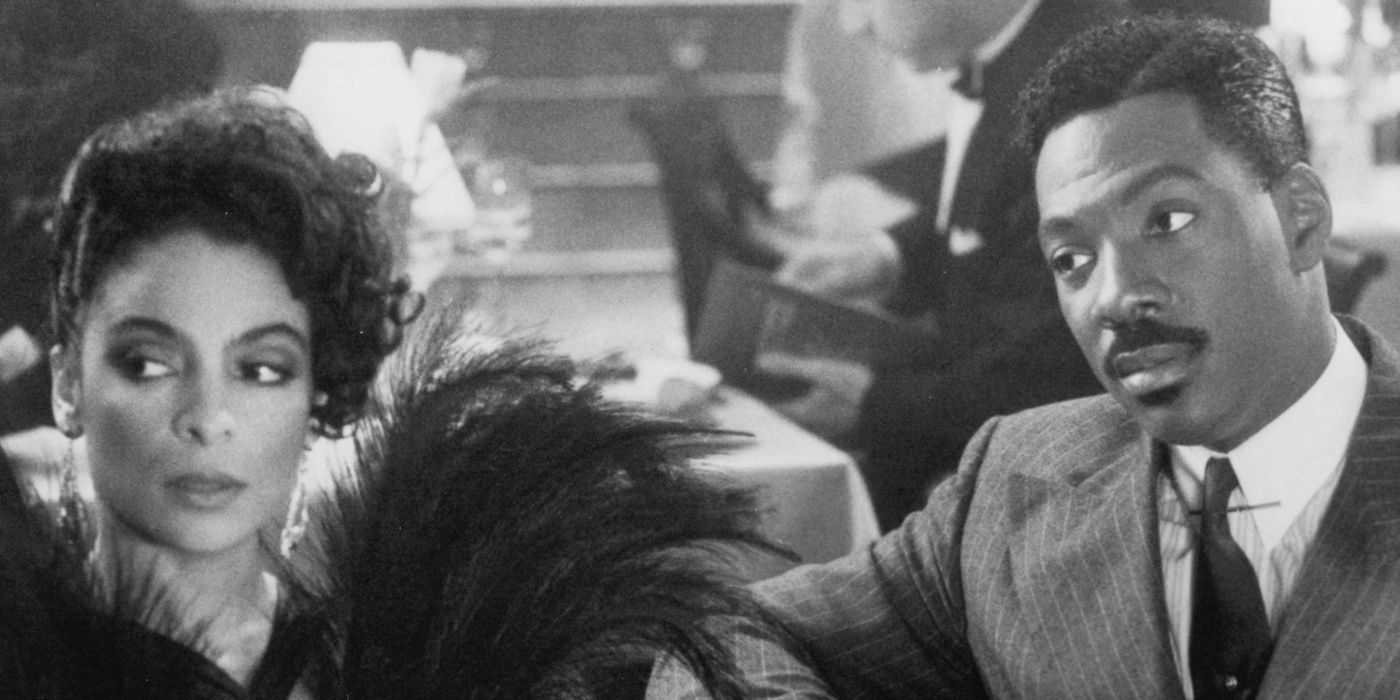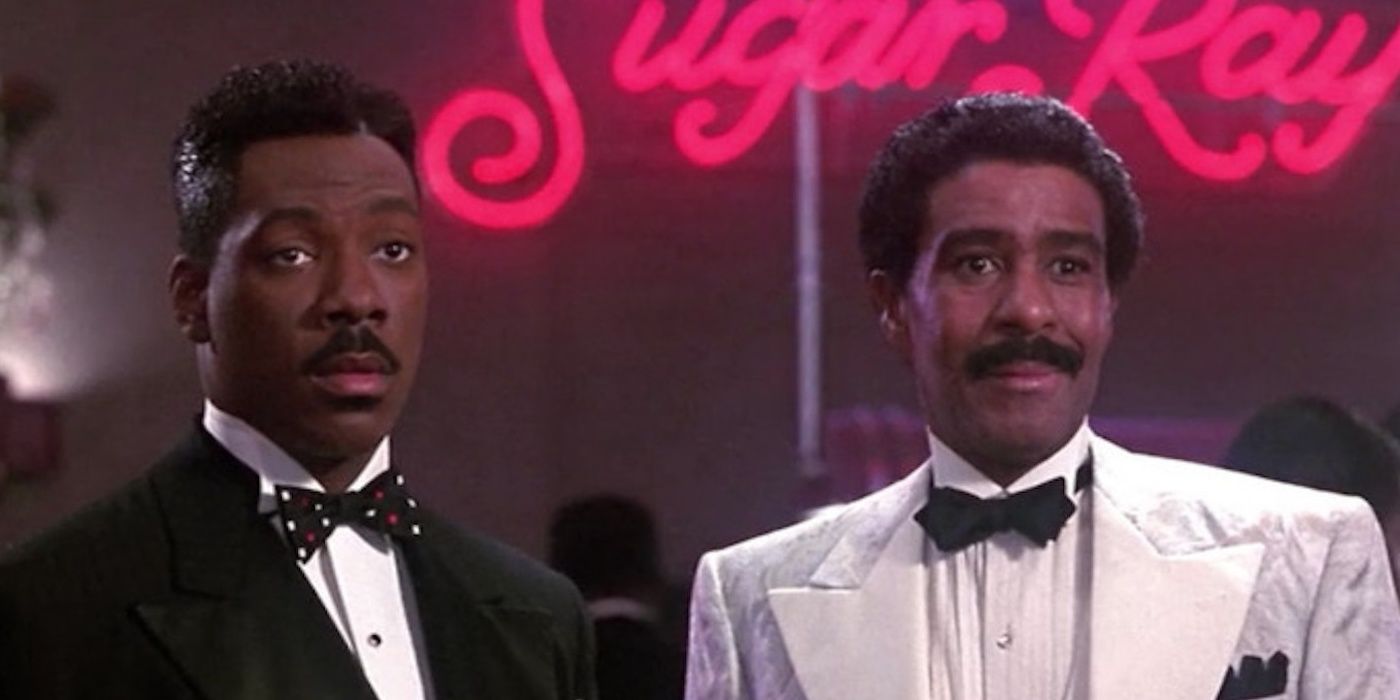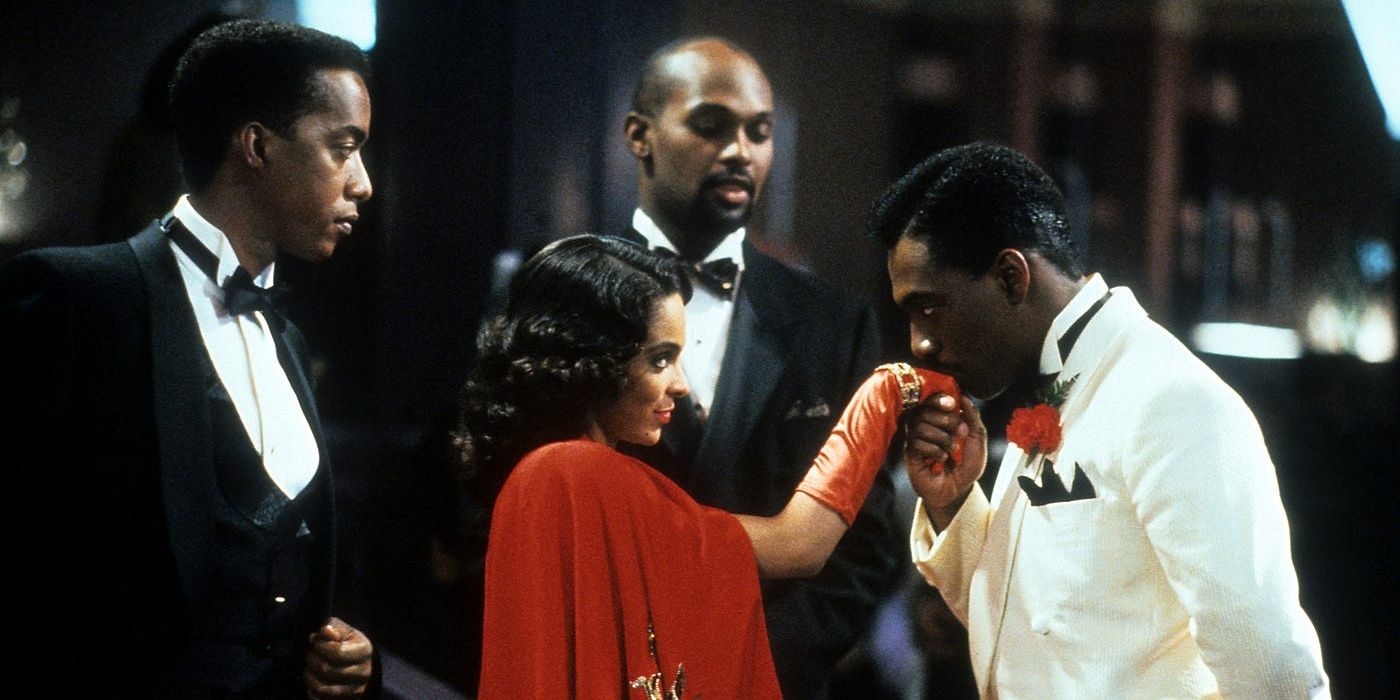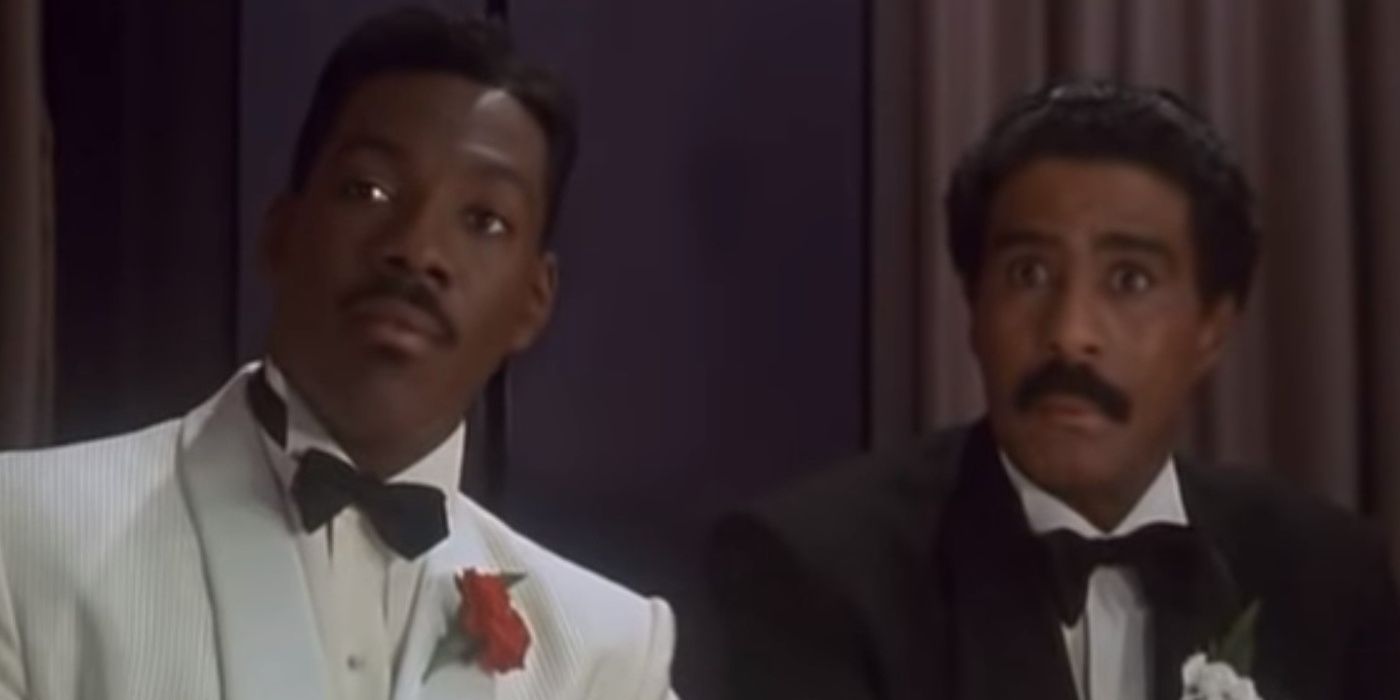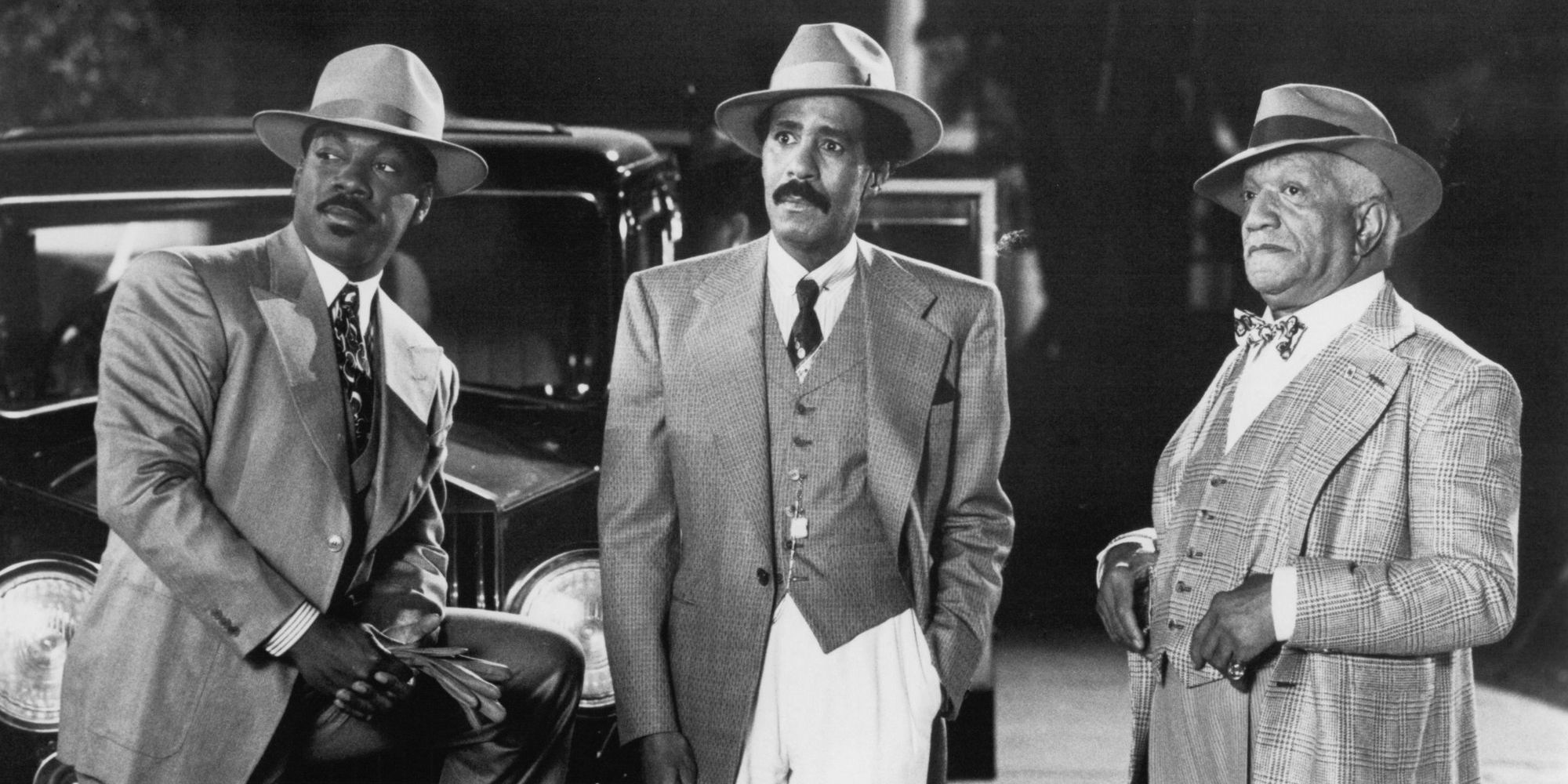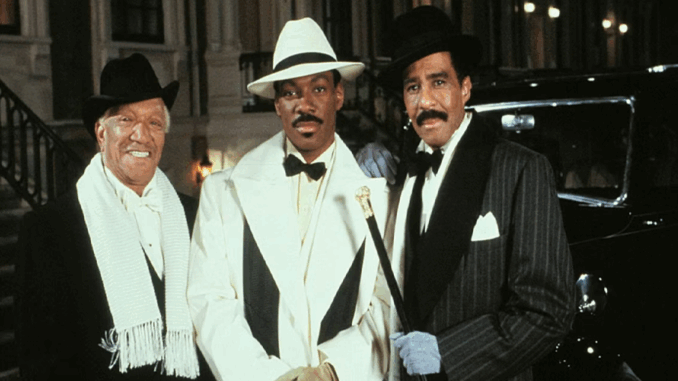
By leaping off the screen on Saturday Night Live when he was only 19, Eddie Murphy instantly proved himself as one of the most revolutionary voices in comedy that American pop culture has ever seen. He quickly captured that momentum into overnight success by becoming one of the biggest stand-up comedians in America and a certified movie star with films like Beverly Hills Cop and Trading Places. He captured a nation’s attention with his abrasive intensity, foul-mouthed antics, and rock-star charisma, and it usually translated into every avenue he explored. It stands to reason that a guy as ambitious as him would eventually want to try out something new, and he put himself in the position to get to pay respect to his idols and make his own movie. That turned out to be Harlem Nights, and it became a disaster that severely damaged his momentum and served as a major embarrassment for him.
What Is ‘Harlem Nights’ About?
The editing is quite lax, which unfortunately diminishes the humor, rendering what could have been amusing moments rather tedious and devoid of charm. While the production design is impressive — trying to recall the charm that The Sting held for audiences over a decade prior — and the film does have funny lines occasionally, most of it is stilted and rambling. It must also be commended that it’s a fresh perspective to see a gangster film with so many Black characters that doesn’t prioritize racism as a dominant focus. As Pryor put it in an interview with Rolling Stone, “You walk around here and look at the people — have you ever in your life seen this many black people on a movie set? I haven’t.”
What’s more shocking is how awful Murphy in particular is, as he comes off more like an animatronic version of himself, having no investment in anything until he has to spit out his requisite jokes audiences had already heard too many times by 1989. This film came out during Murphy’s Raw-era, when most of his comedy and antics were defined by the rampant misogyny that he harbored no apology for, and it comes out in droves here. There’s an entire scene devoted to Murphy getting into a fistfight with a woman named Vera (Della Reese), hurling slurs at her while forcing his signature laugh.
The Film’s Best Assets Are Richard Pryor and Redd Foxx
One of the best attributes that Murphy had as a comic force in his heyday was his ability to pay his success forward towards Black talent in the world of comedy. He was particularly sharp at recognizing upcoming Black talent and putting them in his movies, most notably giving Chris Rock a scene-stealing role as an office worker in Boomerang and getting Dave Chappelle in The Nutty Professor as the insult comic.
Murphy was always upfront about his biggest inspiration being Richard Pryor, and how excited he was at the idea of working with his idol, only to be met with extreme disappointment. He claimed to Spike Lee that Pryor only did the movie for “a big payday” and that he harbored no goodwill towards Murphy. Murphy theorized that Pryor blamed Murphy’s newfound success for the recent failings of his own career, and how he didn’t realize that Pryor was already suffering from his multiple sclerosis condition, which wasn’t public knowledge yet. He admitted that “I never put it together what was happening till afterwards. So it was kind of sad, that part of it.” It’s bad enough to be disappointed in your idol, but to unintentionally disrespect his ailment is soul-crushing.
‘Harlem Nights’ Contributed to a Consistent Critical Pan of Eddie Murphy’s Movies
Murphy may have had a notorious ego throughout the 1980s, so notable that he brilliantly skewered it in Bowfinger as action star Kit Ramsey. But to paint him as a creative monster run amok was cruel and shortsighted on the part of his worst critics. Every indication paints a picture of a guy earnestly trying to chase an ambition while paying respect to those he owed his artistic drive to. It’s a shame that so many things went wrong, and he didn’t have the directorial skills or baseline enjoyment to make it something worthwhile. But it still stands as an important fork in the road, where Murphy figured out his priorities and realized that he was much more potent when he was just in front of the cameras.
